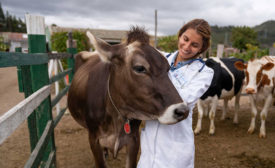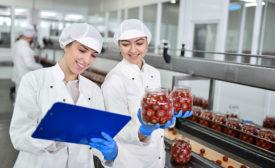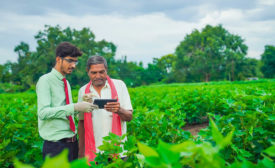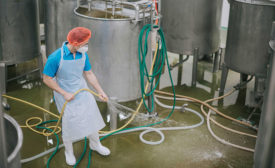Management
Management in food safety includes safeguarding business continuity and product quality through risk assessment, personnel and industry training, sharing best practices and case studies, and establishing robust food defense mechanisms.
Topics
The COVID-19/coronavirus pandemic that began in 2019 has impacted food safety, primarily in relation to facility sanitation, worker hygiene, personnel shortages and turnover, and ongoing supply chain disruptions.
Culture
Food safety culture is an essential, measurable, and sometimes regulated tool for managing food safety in an organizational context. It encompasses accepted behaviors, habits, values, norms, history, and expectations for the myriad ways in which food companies ensure safe food production for consumers.
Best Practices
Best practices in food safety include practices and processes that are followed, recommended, and shared by industry as safe, sustainable, recommended steps to ensure food safety, worker safety, consumer safety, and successful continuity of business operations.
Case Studies
Case studies examine real-life examples or scenarios involving regulatory enforcement or industry best practices in action, analysis of crisis management, technology being used to address contamination of food, or research studies of past events and data.
Food Defense
Food defense is concerned with the safeguarding of the food infrastructure and supply chain from acts of intentional adulteration or tampering, as well as the security of food businesses.
International
International food safety covers strategies, regulations, initiatives, and challenges to food safety and quality on global, regional, national, and other scales.
Recall/Crisis Management
Crisis management encompasses government and industry management of food safety crises such as foodborne illness outbreaks and associated recalls. Food and beverage recalls by food companies or retail outlets may be due to contamination or adulteration.
Risk Assessment
Risk assessment involves strategies, practices, and protocols for assessing, analyzing, and mitigating risks to food safety and quality in business operations.
Training
Voluntary and compulsory trainings for food safety and quality professionals are offered through government, industry, academic, and corporate programs, classes, internships, certification courses, conferences, and other learning modes.
ARTICLES
Two Tools for One Health and Biosurveillance
Increasingly, disease outbreaks are being considered using the lens of One Health
July 2, 2024
How is the Revolution in Technology Changing Food Safety?
How has adoption of different technologies affected processors' daily food safety operations and improved their food safety outcomes?
July 2, 2024
Mission Critical: Cultivating a Culture of Food Safety Excellence
For a future of food safety excellence, companies must reimagine leadership competencies and focus on human skills
July 1, 2024
Pathways to Implementing Food Systems Capacity Building Programs for Smallholder Farmers: Major Constraints and Benefits
Are these programs reaching the smallholder farmers most in need?
June 28, 2024
Can 5S Be a Useful Methodology for the Sanitation Team?
There are multiple benefits to implementation of 5S methodology in the sanitation process and areas, including engagement of the sanitation team
June 28, 2024
EVENTS
Webinar
2/22/24 to 2/22/25
Contact: Vania Halabou
Applied Root Cause Analysis: Using Your Results to Effectively Manage Risk
Webinar
5/1/24 to 5/1/25
Contact: Vania Halabou
Six Steps To Kick-Start Your Preventive Maintenance Program
Webinar On Demand
5/8/24 to 5/8/25
Contact: Vania Halabou
Keynote Presentation: Being Right is Not Enough: Leading Food Safety in a Corporate and Global Environment
Webinar
5/16/24 to 5/16/25
Contact: Vania Halabou
How to Achieve Excellence in Food Safety Business Leadership
Never miss the latest news and trends driving the food safety industry
eNewsletter | Website | eMagazine
JOIN TODAY!Copyright ©2024. All Rights Reserved BNP Media.
Design, CMS, Hosting & Web Development :: ePublishing









